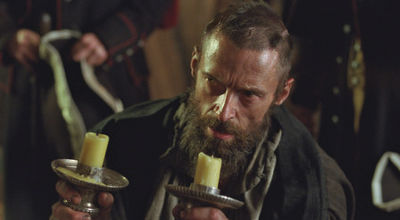Fans of Les Misérables on film or stage may be surprised to know that not everyone in France was of good cheer when Victor Hugo published the book in 1862. The anticlerical set was especially offended by the pivotal role of the Bishop of Digne, who helped determine the course of the novel by resuscitating the soul of Jean Valjean.
As Hugo worked on the novel, his son Charles, then in his 20s, objected to the reverential treatment of the bishop. He argued to his father that the portrayal gave undeserved respect to a corrupt clergy, bestowing credibility on a Roman Catholic Church opposed to the democratic ideals that he and his father held. Charles instead proposed that the catalyst for Jean Valjean’s transformation be a lawyer or doctor or anyone else from a secular profession.
The pushback didn’t work. Not only did Hugo hold his ground, but he amplified the importance of Charles-François Bienvenue Myriel, affectionately known in the novel as Monseigneur Bienvenue (Bishop Welcome).
Click here to read the rest of this article on WSJ.com.





